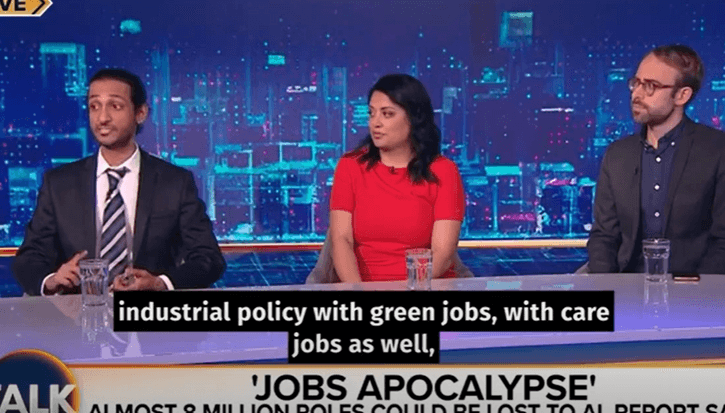Gove Grasps Vision for Rural Economy
Article
Michael Gove’s speech yesterday at the Oxford Farming Conference provided some much-anticipated detail on plans for farming support following Britain’s withdrawal from the EU and with it the Common Agricultural Policy. It also represents some significant steps towards the vision for the rural economy set out in IPPR North’s recent report on the subject.
The CAP framework has been widely criticised, not least because it was seen as disproportionately favouring large landowners and intensive farming practices. Instead the new system will use ‘public money for public goods’. At its core is a system of subsidies linked to sustainability and environmental protection. Soil quality, biodiversity, flood prevention and carbon reduction will all be incentivised.
But the proposed changes go well beyond a new payments system.
The commitment to a rural policy that husbands and harnesses ‘natural capital’ represents a shift towards a far more integrated approach to rural policy. This recognises the role of agriculture in shaping the landscape on which the wider rural economy depends – as well as much of the economy beyond rural Britain. Our own recommendations were based on eight principles which underpin this approach.
Even the most urban of dwellers comes into contact with farming via the food they eat, and the ‘… coherent policy on food’ promised by Mr Gove is long overdue. This will integrate agriculture and food production with their implications for other sectors (such as leisure and tourism, transport, packaging), for the environment, and for public health. Brexit brings real risks across all of these, and a continued laissez-faire policy could leave consumers vulnerable to poor quality and an insecure food supply.
The promise to consider the complex value and supply chains in food production is also important, especially as lines between agricultural production and food processing become blurred. The minister is right to emphasise food quality and animal welfare, whose social and economic implications are far-reaching; for example, premium products play a key role in rural prosperity and in growing Britain’s food exports.
Raising the profile of innovation, technology and skills was another key theme of Mr Gove’s speech. In our research, we found instances of highly effective collaboration between ‘front line’ agriculture and universities, business, and research and innovation organisations. Measures that make it easier for farmers to access this expertise and knowledge have the potential to increase productivity and also support the environmental aspirations of the new policy framework.
The Department for Environment, Food and Rural Affairs (DEFRA) will be pleased that the speech has been broadly welcomed by key stakeholders such as the National Farmers’ Union. Farmers will be glad of the extended transition period, which acknowledges the need for long-term horizons in agriculture and will also help them to adjust to the post-Brexit economy and trading environment. A far more straightforward and speedy system of applications for subsidies is especially valuable for a sector in which many microbusinesses face multiple demands on their small workforces.
However, there are still some big unknowns.
The speech didn’t touch on the governance arrangement for the new system, or how national and local government will work together in this most place-based of economic activities. This was a key concern at a recent Parliamentary roundtable hosted by Lloyds Bank and IPPR North. IPPR North has argued for a devolved approach which would maximise the impacts of the new system, especially given the emphasis on integrating policy areas and fostering collaborations between sectors and businesses, through ‘Rural Devolution Deals’.
And for farmers, the devil will be in the detail - and the deals, as post-Brexit tariff regimes are established and the nature of Britain’s new trading relationships becomes clear. Rural policy is heading in a positive direction - now we need a trade framework and devolved approach which lets British farmers make the most of it.
Related items

Forging ahead: Deciding the direction of IPPR's Migration Policy Unit
In our last blog post for the Migration Policy Unit we shared our new way of working as we endeavour to be inclusive and transparent in our policymaking process. In this blog we set out what our first and flagship project is for the policy…
Who gets a good deal? Revealing public attitudes to transport in Great Britain
Transport isn’t working. That’s the message from the British public. This is especially true if you’re on a low income, disabled or living in the countryside. The cost of living crisis has exposed the shortcomings of our transport system,…
Bhargav Srinivasa Desikan on TalkTV discussing AI
IPPR's Bhargav Srinivasa Desikan on TalkTV discussing his new report on the impact of generative AI on the UK labour market.